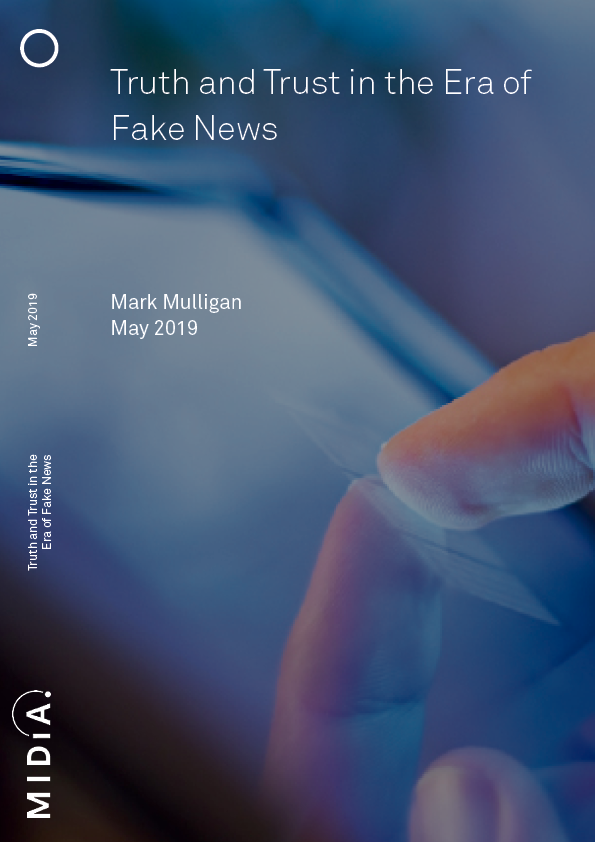Truth and Trust in the Era of Fake News

Get full access to this report and assets
If you are interested this report, or related reports such as Fake News 2017 Social Media’s Coming of Age, Paid News Legacy Titles and New Media Compete For Share Of Digital Voice and Paid News Digital Subscriptions Bubble or Breakthrough? get in touch today to enquire about a report bundle.
The 20,000 Foot View: The second half of the 2010s have become a watershed moment for news. The combination of the manipulation of social platforms by political agents, the growing effect of consumers’ personal filter bubbles and the quasi-legitimisation of unscrupulous news outlets have undermined audience trust across the whole political spectrum. Trust has never been at a lower ebb, to the extent that even those news outlets that seek to productise objectivity are simply seen as part of the trust problem by readers on another end of the political divide. News is caught in a prolonged process of existential crisis, unsure whether the future holds a return to long-held values or instead a dystopian crisis of perpetual polarisation, mistrust and audience manipulation.
Key Findings
- The UK the US presidential election and Cambridge Analytica scandal changed forever news works and its relationship audiences
- These events polarise views, dilute truth and people’s worldviews through the lens filter bubbles
- Trust has politicised, facts have become devalued influence democratised
- Trusting a is the most important consumer for news but this does inherently mean a desire for truth and objective journalism of consumers state that trusting a news source is important to them, peaking among German consumers and falling to in Japan
- The legacy the post-truth era is mistrust anything that does not conform a reader’s worldview, whether that liberal or neo-conservative of consumers share news stories on social media and usually check for accuracy before sharing
- Just of think it important to be of global trends, falling to in the Netherlands and rising in India
- The BBC the most valued news source Canadians and Australians, with The second in Australia and CNN in Canada
- Apple Music, and Deezer users are all likely to care about keeping top of global trends than users
- Filter bubbles virtual walls around audiences, conditioning against any message or editorial that does not align with worldview
- Post-truth is in fact the end of but instead a process of liberalisation
Companies and brands mentioned in this report: Amazon, Amazon Prime Video, Apple, The BBC, Cambridge Analytica, CNN, Deezer, The Economist, The European Union, Facebook, The Financial Times, Fox News, The Gateway Pundit, Google, Infowars, Netflix, News+, The New York Times, Spotify
